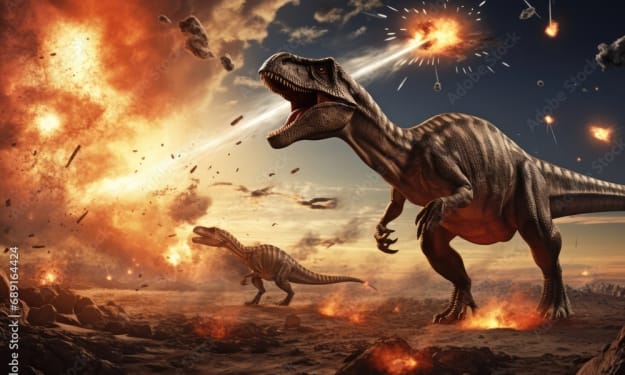
Introduction:
The Gaia hypothesis presents a paradigm-shifting perspective, proposing that Earth functions as a self-regulating and interconnected living system. Coined by scientist James Lovelock and biologist Lynn Margulis in the 1970s, this hypothesis challenges the traditional view of Earth as an inanimate planet, offering a new lens through which to perceive our planet's complex interactions and interdependencies.
The Concept of Gaia:
Living Earth: The Gaia hypothesis suggests that Earth is a living organism, akin to a single, self-regulating entity composed of all living organisms, their interactions, and the environment. It emphasizes the feedback loops and interactions between the biosphere, atmosphere, oceans, and geology, maintaining conditions conducive to life.
Homeostasis and Regulation: Gaia operates with the capacity to regulate its environment, maintaining conditions favorable for life. This self-regulation involves various mechanisms, such as the carbon cycle, climate regulation, and nutrient cycles, contributing to the stability of Earth's systems.
Gaia Theory in Action:
Climate Regulation: The regulation of Earth's temperature through processes like the carbon cycle, where organisms interact with the atmosphere, oceans, and rocks, maintaining a relatively stable climate conducive to life.
Oxygenation and Atmosphere: Life's activities, particularly photosynthesis by plants and other organisms, played a pivotal role in oxygenating Earth's atmosphere, transforming it from a reducing to an oxidizing atmosphere.
Criticism and Controversy:
The Gaia hypothesis has faced criticism, primarily due to its personification of Earth and the lack of a precise mechanism explaining how the planet self-regulates. Some scientists argue that the Earth's systems are not intentionally regulating but rather exhibit emergent properties from the interactions of individual components.
Implications and Further Understanding:
Planetary Perspectives: Gaia theory encourages viewing Earth as a dynamic, interconnected system, urging a shift from a reductionist approach to a holistic understanding of the planet's systems.
Sustainability and Conservation: Embracing the concept of Gaia highlights the significance of conservation and sustainable practices. Recognizing Earth as a living system fosters a deeper sense of responsibility towards its protection and preservation.
Emergence and Self-Regulation:
The Gaia hypothesis suggests that Earth's self-regulation emerges from the collective interactions of living organisms and their environment. This emergent property leads to the maintenance of favorable conditions for life despite external perturbations. For instance, the regulation of the carbon cycle involving plants and oceans helps stabilize atmospheric carbon dioxide levels, influencing global temperatures.
Daisyworld Model:
The Daisyworld model, proposed by Lovelock, illustrates how simple feedback mechanisms can result in self-regulation. In this hypothetical scenario, the presence of black and white daisies on a planet affects the planet's albedo, regulating its temperature. Though simplistic, it demonstrates how life and the environment interact to maintain conditions conducive to life.
Critiques and Debates:
Critics argue that attributing intention or purpose to Earth's systems (as implied by the term "Gaia") anthropomorphizes the planet, potentially leading to a misunderstanding of the mechanisms driving self-regulation. Some scientists also contend that while Earth's systems display complex interactions, referring to the planet as a single, conscious entity may oversimplify its functioning.
Gaia 2.0:
Modern interpretations of the Gaia hypothesis, often termed "Gaia 2.0," shift away from the personification of Earth as a conscious being. Instead, it emphasizes the interconnectedness of Earth's systems and the influence of life on the planet's processes, acknowledging the complexity of interactions without attributing intent or purpose.
Planetary Health and Anthropocene:
Understanding Earth as a living system has implications for the concept of planetary health in the Anthropocene era. It underscores the need for sustainable practices, acknowledging that human activities impact Earth's systems and the delicate balance essential for life.
Techno-Gaia and Future Prospects:
Some theorists speculate on the potential future of Gaia, envisioning a "Techno-Gaia" where human technology integrates with Earth's systems to actively regulate and sustain conditions for life. This concept raises ethical and practical questions about human intervention in planetary processes.
Holistic Environmentalism and Gaia Ethos:
The Gaia hypothesis fosters a holistic approach to environmentalism, advocating for a deep interconnectedness between humans and nature. It encourages a Gaia ethos, emphasizing respect, stewardship, and cooperation with Earth's systems rather than domination.
Conclusion:
The Gaia hypothesis continues to provoke contemplation and debate among scientists and environmentalists, challenging conventional perspectives of Earth's functioning. While the hypothesis has faced critique, its premise inspires a deeper appreciation for the interconnectedness of life and the delicate balance that sustains our planet. Understanding Earth through the lens of Gaia encourages a collective responsibility to nurture and protect the living systems that support life on this remarkable planet.
About the Creator
Siva N
Whenever I write a story, I will bite these things
1.Research Prowess
2.Scientific Acumen
3.Storytelling Mastery
4.Attention to Detail
5.Inquisitive Mindset
6.Adaptability and Creativity
7.Structure and Clarity
8.Empathy and Engagement






Comments
There are no comments for this story
Be the first to respond and start the conversation.